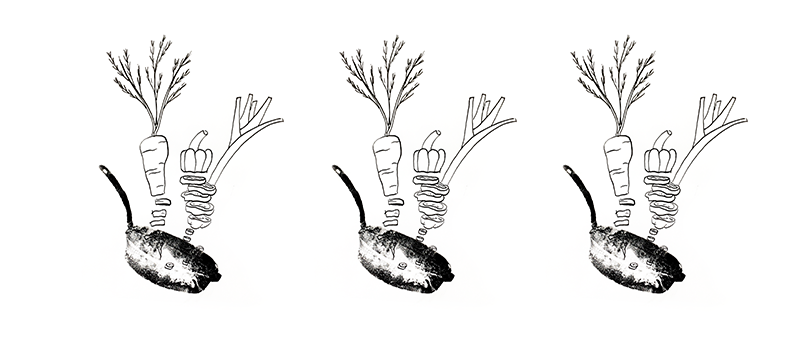Supermarket fridges are full of bags and tubs of pre-cut fruit and vegetables. Very convenient, but do the vitamins get lost?
‘In fruit like apples, a lot of vitamins are in the skin,’ says Eelke Westra, programme manager for Postharvest Quality at Wageningen Food & Biobased Research. ‘And it’s true that some vitamins get lost in peeling and cutting.’ This is because cutting destroys the cell structure. Vitamins are part of the plant’s immune system; they are antioxidants that defend cells when they get damaged, for instance. When you cut up vegetables, you damage the cells and then the vitamins are put to work and get used up.
Fruit and vegetables are often in packaging with low oxygen levels. That does not have a direct impact on the vitamins, says Westra. ‘Its main function is to ensure that cells live longer and it lengthens the product’s shelf life.
Cooking actually makes vitamin E more available in some vegetables
Some vitamins need oxygen, but these are usually locked into the cells, where they are protected.’
What about when you cook them? ‘Cooking breaks down the cell wall, which makes vegetables more edible and digestible. Cooking actually makes vitamins such as vitamin E more available in some vegetables, whereas it breaks down others, such as vitamin C. If you cook vegetables too long, the vitamins from the cells leach into the cooking liquid, and when you then strain the vegetables you lose 20 to 50 per cent of the vitamins.’
You can limit that loss by keeping cooking times short and using the liquid, perhaps for soup or a sauce. Or by steaming, blanching or microwaving vegetables. Freezing doesn’t affect vitamins. But some kinds of fruit and vegetable turn to slush when you defrost them. That’s because the ice crystals that form as the food freezes destroy the cells.
We are bombarded daily with sometimes contradictory information. So what are the facts of the matter? In this feature, a WUR scientist answers your burning questions. Asking questions can make you wiser. Do you dare to ask yours? Email us at redactie@resource.nl

 Illustration: Marly Hendriks
Illustration: Marly Hendriks